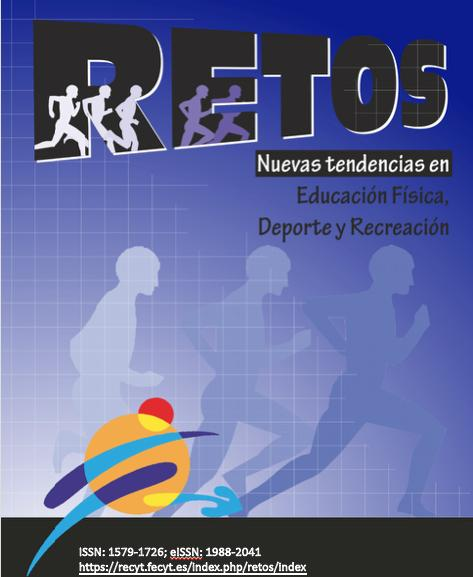The Assessment Tests in Physical Education in the Elementary School - The view of parents and guardians
DOI:
https://doi.org/10.47197/retos.v49.98056Keywords:
parents and guardians, assessment tests, physical education, elementar schoolAbstract
The Physical Education Interim Benchmarks Assessment (PEIBA) are part of an external evaluation process for students in the Elementary School (ES) and the development of the Physical Education (PE) curriculum at this level. Thus, the opinion and view of parents and guardians (PG) about the PEIBA seems to us to be a relevant factor. This work analyzes the way in which 127 PG of 2nd year students perceive the PEIBA developed in the ES, based on data collected through a questionnaire. Questions about PEIBA focused on: i) identification of their knowledge; ii) characterization of the perception of its objectives and content and iii) knowledge of the level of impact of these on their students. The information was treated in terms of content analysis, with a set of analysis categories having been created for one of the questions. The results showed that a very relevant number of PG are aware of the PEIBA, and consider that these have a very positive value for the evolution of their students, due to their formative assessment role. At the same time, they consider that the PEIBA arouse a strong interest in their students. We can conclude that PG knowing the PEIBA consider them very positively, being able to identify objectives and contents, with impact and interest in the students.
Key words: parents and guardians, assessment tests, physical education, elementary school
References
AIESEP (2021). AIESEP – Tomada de Posição sobre Avaliação em Educação Física, Boletim da SPEF, 42, março, Lisboa.
Bardin, L. (2009) - Análise de conteúdo, Lisboa: Edições 70.
Chróinín, D. & Cosgrave, C. (2013). Implementing formative assessment in primary physical education: teacher perspec-tives and experiences, Physical Education and Sport Pedagogy, 18:2, 219-233, DOI: 10.1080/17408989.2012.666787
IAVE (2018). Provas de Aferição − Ensino Básico Relatório Nacional: Metodologia, https://iave.pt/wp-content/uploads/2020/02/METOD_Relatorio_PA_2016-2017_form.pdf . Acessado em 10 de janeiro.
IAVE. (2017). Resultados Nacionais das Provas de Aferição, 2017. https://iave.pt/relatorios/
IAVE. (2019). Resultados Nacionais das Provas de Aferição, 2018. https://iave.pt/relatorios/
IAVE (2021). PAR - Projeto de Acompanhamento de Escolas na Análise e Utilização
dos Relatórios da Avaliação Externa - Relatório 2019/2020, Lisboa.
Quitério, A., Costa, J., Martins, J., Fernandes, D., Picado, André, Mota, J., Gerlach, E.,
Scheuer, C. & Herrmann, C. (2017). Assessment in primary physical education: Exploring basic motor competencies in six-year old Portuguese children, Conference Paper, 12th FIEP European Congress - Luxembourg
Martins, J., Marques, A., Peralta, M., Palmeira, A., & Carreiro da Costa, F. (2017). Correlates of physical activity in young people: A narrative review of reviews. Implications for physical education based on a socio-ecological approach. Retos, 31, 292–299. https://doi.org/10.47197/retos.v0i31.53505
Neves, R. (2007). A construção curricular da educação física no 1º ciclo do ensino básico – conhecimento e percepções dos professores. Tese de Doutoramento apresentada ao Departamento de Didáctica e Tecnologia Educativa – Universidade de Aveiro (não publicado). https://ria.ua.pt/handle/10773/1454
Santos Caló Silva, F., Moraes, M. G., Pestana, D. ., Barroso Hirota, V. ., & Lopes Verardi, C. E. (2022). Motivación y Percepción del Apoyo de los Padres: Un Estudio con Jóvenes Atletas de Deportes Individuales y de Equipo (Motivation and Perception of Parental Support: A Study with Young Athletes of Individual and Team Sports). Retos, 45, 671–678. https://doi.org/10.47197/retos.v45i0.93007
Silva, M.J., Pereira, M., Queirós, R., Ferreira, S. & Neves, R. (2019). Provas de Aferição em Expressão e Educação Físico-Motora no 1º ciclo em Portugal – expectativas dos professores, Revista Indagatio Didactica, 11, (4), 209-221, Centro de Investigação em Didática e Tecnologia Educativa, Universidade de Aveiro
Downloads
Published
How to Cite
Issue
Section
License
Copyright (c) 2023 Retos

This work is licensed under a Creative Commons Attribution-NonCommercial-NoDerivatives 4.0 International License.
Authors who publish with this journal agree to the following terms:
- Authors retain copyright and ensure the magazine the right to be the first publication of the work as licensed under a Creative Commons Attribution License that allows others to share the work with an acknowledgment of authorship of the work and the initial publication in this magazine.
- Authors can establish separate additional agreements for non-exclusive distribution of the version of the work published in the journal (eg, to an institutional repository or publish it in a book), with an acknowledgment of its initial publication in this journal.
- Is allowed and authors are encouraged to disseminate their work electronically (eg, in institutional repositories or on their own website) prior to and during the submission process, as it can lead to productive exchanges, as well as to a subpoena more Early and more of published work (See The Effect of Open Access) (in English).
This journal provides immediate open access to its content (BOAI, http://legacy.earlham.edu/~peters/fos/boaifaq.htm#openaccess) on the principle that making research freely available to the public supports a greater global exchange of knowledge. The authors may download the papers from the journal website, or will be provided with the PDF version of the article via e-mail.


